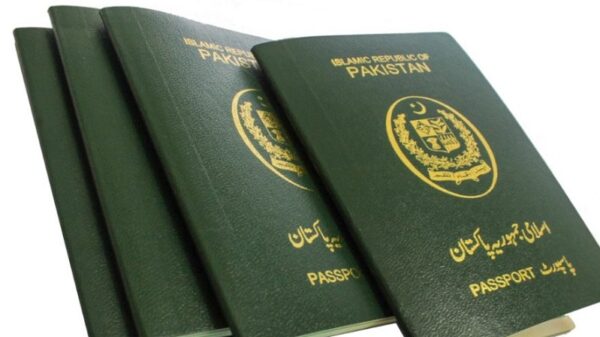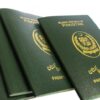The story of horse-trading is as old as the history of the flawed democratic process in this country. The establishment uses money and perks to manipulate the show clockwork of the show called democracy.
Unfortunately, for the past several decades, Senate elections have been seen as very lucrative for all those who are always known to invest heavily to win their seats, or for those who betray the confidence of their party or constituencies inside the power corridors.
The trend of horse-trading or investment in parliamentary politics is not new. It started immediately after the independence but the civil-military establishment during the 50’s and 60’s nurtured it. At that time, it was none other than the top brass of the civil and military establishment who helped the so-called political rulers who had consolidated their political position through horse-trading and huge investments and are still doing so.

The first military ruler, Ayub Khan, was the one who offered politicians cash, perks and privileges. According to senior journalist and political analyst Shamim Shahid while quoting Akhtar Ayub Khan, son of the late
Ayub Khan, it was Arbab Saif-ur-Rehman Khan Khalil who refused to accept PKR 500,000 in return for supporting Ayub Khan in the 1960s.
Arbab Saif-ur-Rehman, who was an MNA and was twice elected Deputy Speaker of the Khyber Pakhtunkhwa Assembly, was one of the most loyal and ideological members of Bacha Khan’s Khudai Khidmatgar Movement. Later on, though, he himself deviated from the National Awami Party and the Awami National Party.
Similarly, several other members of this nationalist political movement rejected the attractive offers made by the then rulers. Senior political commentator Haroon Rasheed recently alleged at a TV show that it was Pakistan Peoples Party, which started this buying and selling of tickets and members.
“It was Gulzar Khan from Dera Ismail Khan who bought the party ticket when Benazir Bhutto arrived to contest the election at the end of the Zia regime. After winning the general elections PPP obviously had no majority in the senate. So Asif Ali Zardari at one point bought three members from Baluchistan by paying five million each.”
In the 1991 Senate elections, no one but the leaders of the religious political party were responsible for the formal introduction of horse trading when two MPAs of the same religious political party voted for a candi- date retired from the Bahrain Navy in the 84-member House. He contested the Senate elections as an independent candidate. Later, as an independent candidate, Commander Khalil-ur-Rehman got a record 32 vote.
Apart from Commander Khalil-ur-Reh- man, two brothers from Dera Ismail Khan (sons of Gulzar Khan) and several other members including the nominated leaders of the Pakistan Peoples Party and the ruling Pakistan Muslim League-N, also won the Senate elections allegedly through huge investments.
At that time, the PPP had only six members in the assembly and the PML-N’s nominee, an industrialist, candidate had paid PKR 500,000 each to some members of the assembly in the show boxes.
Besides Khyber Pakhtunkhwa and Baluchistan elected members from former FATA always played an active role in horse-trading.
There were two reasons to that. One, most of them had no political roots and were often elected as independent candidates. Secondly, they were always loyal to their respective political administration under FCR, a law from British colonial era. If a candidate having the moneybag needs a slot in the senate, the candidate will need the support of 46 elected members from Punjab.
But if the candidate applies through KP, it will have to grab only 19 elected members. If the same candidate applies from Baluch- istan, the demand drops to only eight elected members.
That is the reason for turning KP and Baluchistan into the epicenter of horse-trad- ing during Senate Elections. It is easy to collect 8 or 19 votes than to go after 46 votes. This is the reason of the cost differ- ence between even KP and Baluchistan for buying the votes from these two federating units.
After the recent video leak of the previous senate election where members of the ruling party were receiving cash bundles it was alleged that each member was receiving 30 million rupees for their vote in the elections. PTI insider told this scribe that it was because of the fear of vote slip by own party members. So it was decided to offer money to cement their party loyalties. It is now difficult to forecast the vote cast in Khyber Pakhtunkhwa but in Baluchistan, members are reportedly receiving millions of rupees to offer their vote.
In the 2018 Senate elections, the biggest losers from horse-trading were the Pakistan Tehreek-e-Insaf (PTI) and the Qaumi Watan Party, which was part of the coalition government at the time, while the PML-N and the PPP benefited.
The Senate was introduced as an essential component to ensure the protection of the interests of the four federal units on an equal footing. Since then its elections have been conducted on a proportional basis and
it has also been made mandatory that the members of the house elected from the respective Electoral College belong to the province from which they are contesting the election.
In addition to the tendencies of the civil-military establishment and the rulers who have always tried their best to damage its status, horse-trading plays a key part in eroding the prestige of this institution.
In 2003, it was the Jamaat-e-Islami that helped its candidate, the late Professor Khurshid Ahmed, from the MMA quota in Khyber Pakhtunkhwa. Professor Khurshid was from Karachi and his vote was registered in Peshawar to contest the Senate elections from Khyber Pakhtunkhwa.
In 2015, the MQM elected Barrister Saif from Sindh at the behest of someone else. Saif hails from Khyber Pakhtunkhwa and is considered a close and loyal ally of former military dictator Pervez Musharraf.










